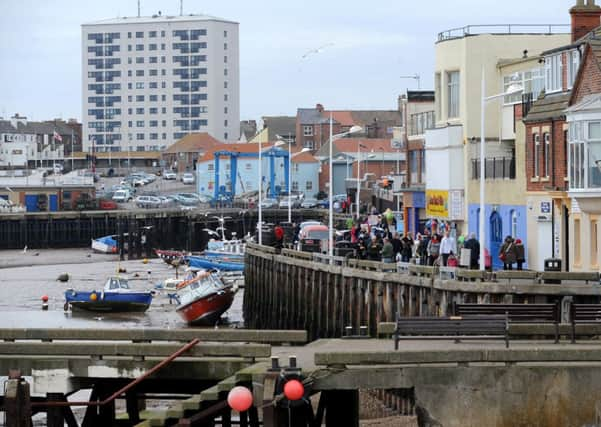Why older generation could rejuvenate towns and cities


HOW does a bustling high street without any shops sound to you? Or a multinational company sponsoring one of our seaside towns?
It might seem a bit far fetched but these are just a couple of the potential changes Britain’s ageing population could have in store for our towns and cities in the future, according to a new study.
Advertisement
Hide AdAdvertisement
Hide AdBuilding Futures, the think tank of the Royal Institute of British Architects (RIBA), has been examining some of the economic and social changes that a bigger ageing population could bring in the coming decades.
Over the next 20 years the number of people over the age of 60 in the UK is expected to increase by 40 per cent as more people enjoy longer and, in many cases, healthier lives.
By 2040 this silver-haired brigade will have growing social, economic and political clout, but what difference will it make?
If the RIBA’s report – Silver Linings: the Active Third Age and the City – is to be believed, then the answer could be a great deal. It describes a future where some people choose to spend their retirement years travelling the world, while others live with their children and grandchildren under the same roof.
Advertisement
Hide AdAdvertisement
Hide AdThe Building Futures report wants to kick-start a debate about the role a fit and active older generation can play and the impact it might have on our towns and cities, looking at everything from housing and education, to employment and the wider economy.
It also offers some innovative ideas on how our beleaguered high streets could take on a new lease of life with health hubs, child care facilities and disused phone boxes turned into heart-monitoring stations.
Seaside towns, it suggests, could also be transformed by the private sector bringing specialist industries to places like Bridlington and Blackpool and tapping into the skills of an older, more flexible workforce.
James Parkinson of the RIBA’s Building Futures and co-author of the report, says the aim of the study was to look at existing trends and explore new ideas.
Advertisement
Hide AdAdvertisement
Hide Ad“We hear a lot about our ageing population and its cost to society in terms of care and disability, but there’s a growing group, aged between 60 and 75, who are still very active and we wanted to look at what opportunities there are for this group and the impact they can have on society.”
Some of the ideas put forward might stretch some people’s credulity, but with our nation’s demographics changing at a rapid rate of knots Parkinson believes it’s time we took a closer look at how this could affect the towns and cities of tomorrow.
“We are speculating and making a series of assumptions and trying to be provocative to a certain degree, but we want a proper debate about what we’re going to do with our high streets in the future and the role that older generations might have,” he says.
“A lot of high streets are based around town halls where people traditionally meet but many of them, especially those in less well-off areas, now have a lot of betting shops and pound shops and there aren’t the same kind of community services.”
Advertisement
Hide AdAdvertisement
Hide AdBut this could change in the future. “If child care costs keep going up then perhaps older generations will spend more time looking after their own grandchildren and this could mean more high street crèches.”
He says as a fitter, older generation will also have different demands compared to young people which could lead to more health centres and gyms.
As people get older they tend to move away from the hustle and bustle of big towns and cities, but this might not be the case in the future.
“We’re becoming more urban and recent generations have grown up in and around cities and they want cultural amenities on their doorstep and to them the idea of retiring to the country is completely alien,” says Parkinson.
Advertisement
Hide AdAdvertisement
Hide Ad“We’re coming up with more questions than answers, we’re not providing solutions. We want people to come up with their own ideas, we want to shift the debate so that we’re not viewing the older generation as a burden on our resources, but instead we’re exploring the social and economic benefits they can bring to our towns and cities,” he says.
“We’re living in unprecedented times. In the past, civilizations revolved around young people whereas technology and medicine is enabling us to live longer which has completely changed the game.
“That’s why we need to have this debate and to start seeing ageing not as a problem, but an opportunity.”